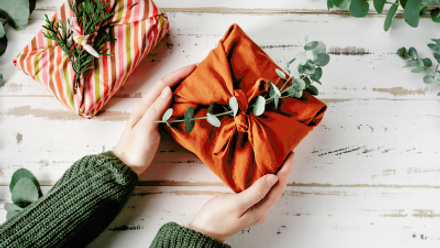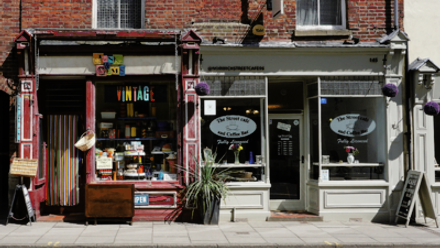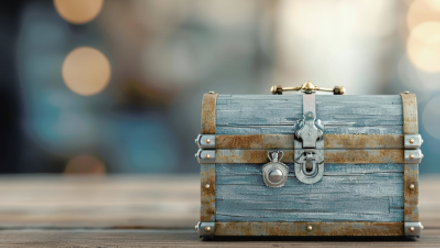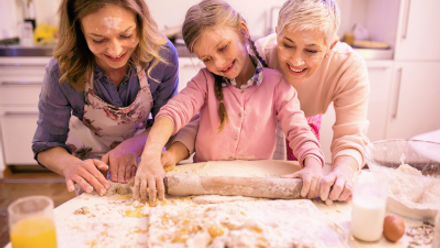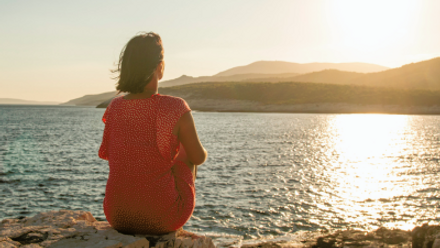Inspiring a sustainable future
3 min read
As I write this, the shops are starting to fill up with Easter ‘merch’: endless rows of fluffy chicks and bunny toys, mountains of bonnets and baskets, gifts and décor, clothing and cards. Since when did this time of year require yet more gift-giving and diving into our pockets and purses that might not have fully recovered from Christmas?!
However, it’s not just seasonal holidays that encourage us to keep buying. The incessant hum of consumerism can be heard year-round through our TVs, radios, social media feeds, and even the conversations we have with each other. Sometimes it’s in-your-face, like the beautifully-curated shop displays that lead us to believe our celebration won’t be half as good without their products. More often though, it is the more subtle messaging across media channels that tell us our lives are not totally complete - or that we ourselves are not quite good enough - without this next purchase. That’ll be the one that will solve all our problems (until the next thing comes along, of course).
The problem with this constant trend-chasing, however, are the limits that surround us all.
Reaching our capacities
On a ‘local’ level, our homes only have so much space to contain all these purchases that promise to make our lives better. And actually we know that overfilling our home with items is much more likely to make us feel stressed and anxious and so dent our self-esteem and wellbeing rather than boost it.
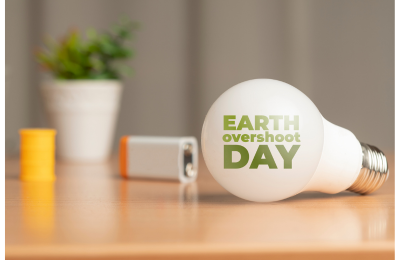
On a global level, however, the problems are even more concerning. Just as our homes only have so much space, the Earth only has so many resources, and scientists have been monitoring how we use these resources for the past fifty years. Earth Overshoot Day is the day of the year that we reach the limit of what our planet can sustainably provide for us for the lives we are currently living, and last year that day was 2nd August. This means that for the last five months of the year we are running on empty and essentially stealing from our own future.
To create a sustainable future, we can no longer just rely on recycling and rehoming all of the purchases we make and then regret, we have to learn to ignore the lure of consumerism so we can make more mindful decisions about what we need and want in our lives and homes.
Stem the flow
This isn’t about living a minimalistic life or never purchasing another item – if we’re talking about sustainability, frankly that isn’t a sustainable way of living for most of us! Instead, it is about introducing a pause. So, when we see influencers promoting the latest refillable drinks bottle, or we’re poised to buy the next ‘must-have’ item of fast-fashion, let’s stop and think: “Do I need this or do I just want it?”, “Do I have space for it?”, “Do I already have something similar?” and – crucially – “What will happen to this once I’ve got rid of it?”
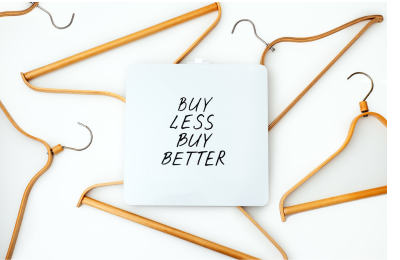
Pausing to ask ourselves just a few questions allows the rush of endorphins that often come with shopping to wear off a little and allows us to make more considered decisions. In short, pauses mean fewer purchases.
And having fewer items to juggle in our homes creates the space for us to make more mindful decisions, which could mean that when we do need to buy a new pair of jeans, for example, we have the capacity to ask a few more questions: “Have the resources for these been sustainably produced? Who made them and have they been fairly paid? Are they of good enough quality to last? Is it possible to recycle these or repurpose them at the end of their usable life?”.
What next?
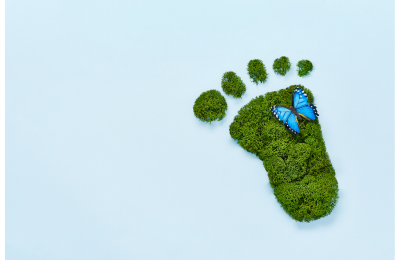
With an issue as big as sustainability, it is easy to wonder what difference you could possibly make, but every step we all take has an impact.
Over this next week we will be sharing a series of blog posts with suggestions and inspiration for actions you can take to reduce your environmental impact and cause positive ripples throughout your home and community.
Do join us over on social media to share what you’ll be trying out and the difference you hope to make. And to find a local organiser who can help you declutter with sustainability in mind, check out our Find an Organiser page.
Kate Yiannacou is a sustainable decluttering coach at Tidy Happy Calm. You can follow her on Instagram and join her sustainable decluttering community over on Facebook.

